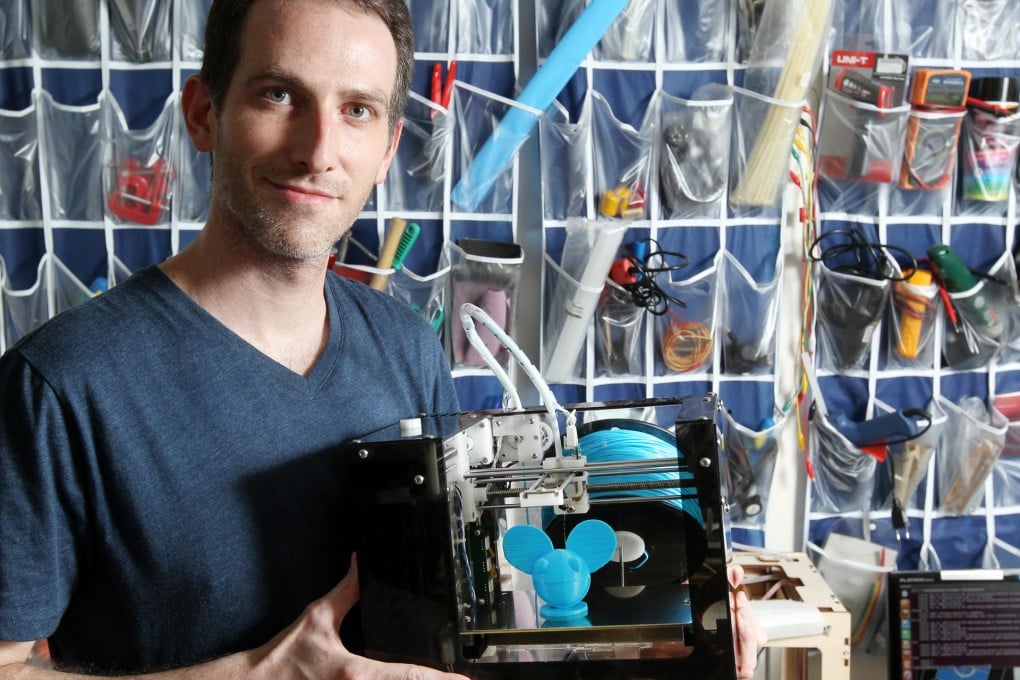At HackJam, great minds tinker alike
From 3-D printers to a mood-changing eye mask, creative mash-up HackJam helps inventors turn ideas into reality as the maker movement reaches Hong Kong, writes Charley Lanyon

It's a quiet Tuesday night, but Dim Sum Labs - a workspace shared by a motley crowd of tinkerers - is a hive of activity. Located in a nondescript building in Sheung Wan, the small room is taken up by a large desk, a couch, a refrigerator stocked with beer and a large work table. One end is full of equipment: what looks like a drill press and other large tools.
While most people are hunched over laptops, one man is turning over in his hands a spotlight made from LEDs; another person is straightening wires running from a circuit board to what looks like a sleep mask. The room goes quiet as one man gingerly lifts a large box onto the work table and pulls out its contents. First is a life-like paper mask of Bill Clinton's face, which draws laughs all round. Then out comes the large torso of a robot.
Welcome to HackJam, a meeting of craftspeople, hobbyists, designers, programmers, engineers and do-it-yourselfers held weekly at Dim Sum Labs.
The maker movement is a way to push society forward
The initiative got its start two years ago when tech entrepreneur John Buford noticed a lack of communal workspaces here compared to the West, where they have proliferated in recent years. Drawing inspiration from Tech Shop, a chain of spaces in the US where people can go to use specialised, cutting-edge tools, he gathered a group of people who now share the Sheung Wan space.
They may be pursuing different projects and come from disparate backgrounds (there is even a recently retired British lawyer), but everyone is united in their identity. They are all makers.
Not unlike the hobbyists building early computers in Silicon Valley garages, makers are a tech-based extension of a DIY culture that first emerged in the US West Coast. Their ethos is captured by US Make magazine, which launched in 2005 as a publication that "celebrates your right to tweak, hack and bend any technology to your will".
Since then, they have grown into a global movement, with tens of thousands of enthusiasts gathering to show off their creations and share new techniques or hacks at "Maker Faires" held in cities from San Francisco to New York, and Taipei to Shenzhen.